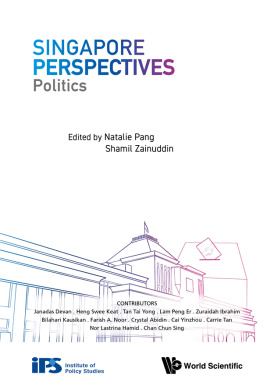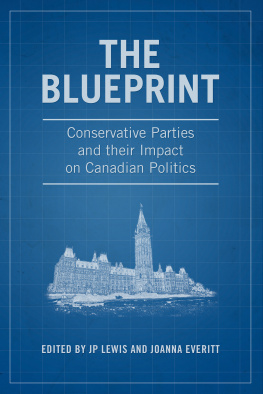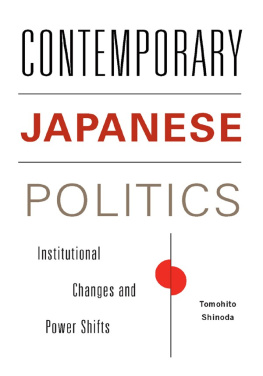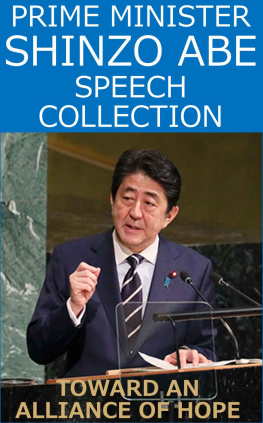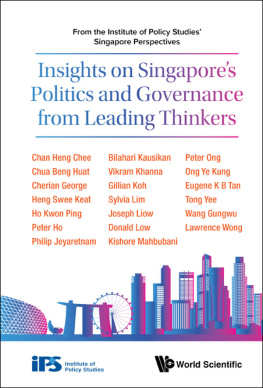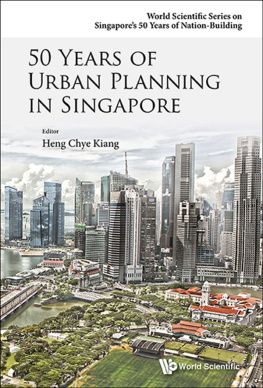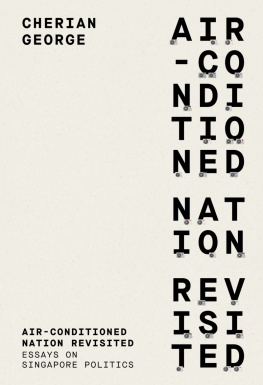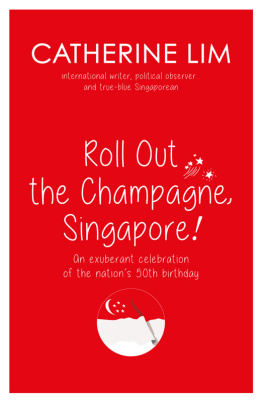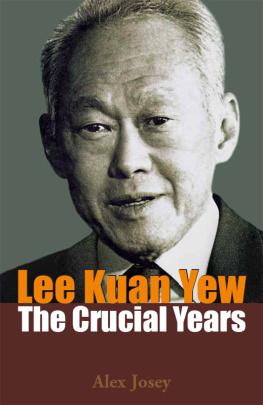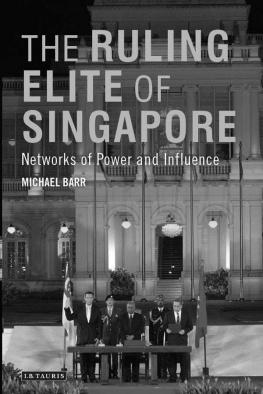Contents



Published by
World Scientific Publishing Co. Pte. Ltd.
5 Toh Tuck Link, Singapore 596224
USA office: 27 Warren Street, Suite 401-402, Hackensack, NJ 07601
UK office: 57 Shelton Street, Covent Garden, London WC2H 9HE
British Library Cataloguing-in-Publication Data
A catalogue record for this book is available from the British Library.
SINGAPORE PERSPECTIVES
Politics
Copyright 2021 by Institute of Policy Studies
All rights reserved.
ISBN 978-981-122-768-4
ISBN 978-981-122-572-7 (pbk)
For any available supplementary material, please visit
https://www.worldscientific.com/worldscibooks/10.1142/11979#t=suppl
Desk Editor: Sandhya Venkatesh
Printed in Singapore
Contents
Janadas Devan
Natalie Pang and Shamil Zainuddin
Chapter 1
Singapore, Together
Heng Swee Keat
SECTION I
Paths Taken
Tan Tai Yong
Chapter 2
The PAP: Past, Present and Future
Lam Peng Er
Chapter 3
Singapores Opposition: Surprises or More of the Same?
Zuraidah Ibrahim
Chapter 4
Fatalism is Fatal for Small States
Bilahari Kausikan
SECTION II
New Forms and Movements
Farish A. Noor
Chapter 5
Activism in Singapore in the Digital Age: Influencer Cultures, Meme Factories, and Networked Virality
Crystal Abidin
Chapter 6
Lorongs of Wisdom
Cai Yinzhou
Chapter 7
Removing Barriers, Excavating Potential from the Underserved
Carrie Tan
Chapter 8
Creating and Uniting a Climate-Conscious Singapore
Nor Lastrina Hamid
Chapter 9
Three Hypotheses on Keeping Singapore Going, Growing and Glowing
Chan Chun Sing
Preface
JANADAS DEVAN
Some years ago, IPS Fellows decided to focus on four areas of research: diversity, aging, income inequality, and the governance of a city-state. As part of its focus on the fourth area, IPS has returned, over and over again, to the question of politics the science or study of government and the state, to use one of the many definitions of the word in the Oxford English Dictionary. Significantly, if we examine the deep history of the word, we will find that it comes from the Greek word polities, or citizen; and polities in turn comes from another Greek word, polis, or city.
Fortuitously or not, we might say that politics has been a particular concern of citizens of city-states. Singapore, being about the only successor in the modern era to the Greek city-states, is naturally, concerned about politics. The topic is of course timely. The organisers of Singapore Perspectives in 2020 settled upon it for that reason.
Another reason is that 2021 will be the 10th anniversary of Prism, a scenario-planning exercise that began in 2011 on the question: How will Singapore govern itself in 2022? It was one of the most ambitious projects that IPS has ever embarked upon. More than 140 people from seven key sectors of society from corporate leaders to public intellectuals, from the public service to civil societies were asked to develop scenarios of Singapores possible political trajectory from 2011 to 2022. In 2012, the various scenarios imagined were presented through forum theatre and interactive exhibits put together by Drama Box and Mr Kok Heng Leun.
I will do no more than recall here the three scenarios that Prism settled upon. The first was called SingaStore.com singa as in lion, and store as in a place where you buy things. This scenario envisioned a pro-business, high-growth world that the public trusts, which invests in people and endeavours with the highest potential to create economic value. The question was how socially sustainable such a world would be.
The second scenario was called SingaGives.gov, as in to give things. This was envisaged as a pro-Singaporean scenario where the public trusts in a new government and an elected president to implement an egalitarian framework supported by the use of the national reserves. The question here was how fiscally sustainable such a Singapore would be.
The third scenario was called WikiCity.sg wiki as in Wikipedia. This was envisaged as a pro-active scenario with a new coalition government elected to trim the role of the states because citizens had come to have low trust in government and which would allow for self-organising communities to emerge to meet the daily needs of the people. The question here was how politically sustainable such a society would be.
I leave it to you to judge how prescient the 140 Prism participants were. Possibly the scenarios say more about their state of mind in 2011 than they do of the future, which is now almost present. Undeterred, nevertheless, we will embark on yet another scenario-planning exercise soon, a sort of Prism 2, around the question: How will Singapore govern itself in 2032? Singapore Perspectives 2020, we hope, will suggest profitable lines of enquiry.
Politics is not simply about political parties. The question of what good politics looks like for Singapore is one that all of us need to engage with. It was Zuraidah Ibrahim who defined our greatest political challenge as how can we change and yet remain together. Deputy Prime Minister Heng said something similar: How do we remain together, while being part of an exceptional city-state? Be well-organised, never stop thinking of tomorrow and yet accommodate greater political diversity, plurality and a greater contestation of ideas.
Acknowledgements
IPS is grateful to the following institutions for their support of Singapore Perspectives 2020.




Introduction
NATALIE PANG AND SHAMIL ZAINUDDIN
Immerse the audience in our colourful political history.... It does not have to be very rosy; it does not have to be all about a single party. There are many paths taken by individuals in political parties, civil society and non-governmental organisations, which have brought us to where we are today.
The quote above is from a brief that we wrote during an initial meeting on the theme Politics, for Singapore Perspectives 2020 (SP2020). Should this conference be about electoral politics? Should this conference highlight pivotal choices that individuals from various political parties and civil society have made? Should this conference be about the past or the present?
We concluded that a Singapore Perspectives conference on the theme of Politics would present a wide variety of views, not just from the perspectives of parties and the geopolitical influences shaping Singapores politics, but also perspectives of citizens that are making changes in new ways. We wanted an engaging event that would allow attendees to build on the past while deliberating about the future. So serious were we about wanting to immerse the audience in Singapores politics that we wanted to explore an experiential multimedia event where images and videos of key moments in Singapores political history would be projected on all the walls of the conference room. Numbers and space were not in our favour, so we redirected our focus and resources to curating dialogues and panels that would present a diversity of opinions and personalities personalities who were not only authorities in their chosen field but who were also engaging speakers. SP2020 sought to engage the audience in a reflective dialogue on their experience of politics, both in the traditional sense of elections and governance as well as beyond those formal structures.

